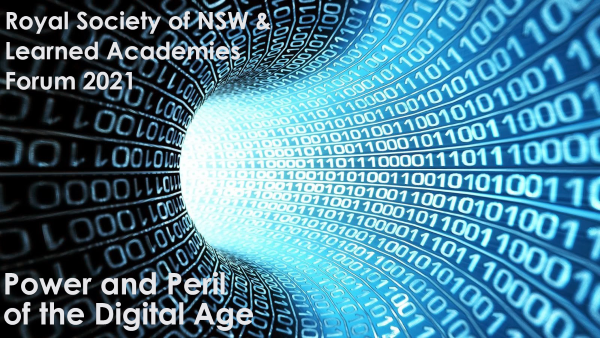Donations
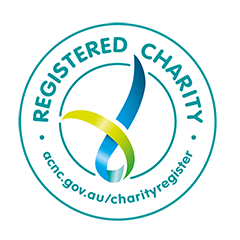 The Royal Society of NSW is a registered charity and very much welcomes your support. Donations in support of our Library and Scholarship programs are tax-deductible in Australia. At this time, in late 2023, our focus is on the following project.
The Royal Society of NSW is a registered charity and very much welcomes your support. Donations in support of our Library and Scholarship programs are tax-deductible in Australia. At this time, in late 2023, our focus is on the following project.
RSNSW Bicentennial Postgraduate Scholarships
We seek your tax-deductible donation in support of the RSNSW Bicentennial Postgraduate Scholarship program that acknowledges excellence and supports young researchers in NSW. To read further about the intent of the bicentennial scholarships program, please follow this link To support this important work, we invite you to please do so through the donation form below.
Further information about this fundraising effort
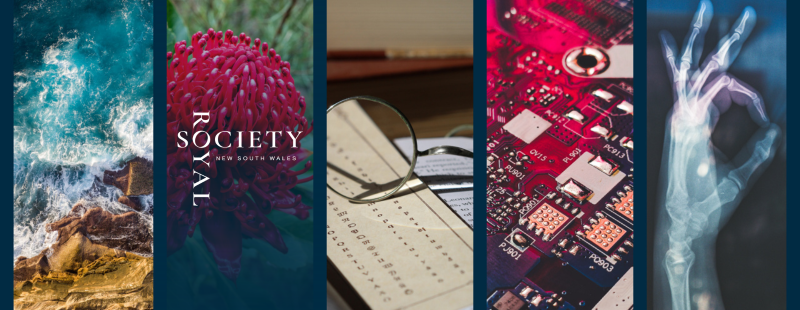
The Society has a long tradition of supporting young researchers in NSW. Now, more than ever, Australia needs to foster our future leaders.
In 2023 the Society redesignated its postgraduate scholarships to commemorate the Society’s Bicentenary. It will award them to three students each year beginning this year.
The sustainability of the RSNSW Bicentennial Postgraduate Scholarship program depends very much on your support.
Winners receive a cash prize of $1,000, plus a complimentary year of membership of the Society. Membership provides these scholars with the opportunity to network with learned researchers and leading professionals across a wide range of disciplines.
We also invite them to deliver a short presentation of their work to the Society at a general meeting and submit a paper to the Journal and Proceedings of the Royal Society of New South Wales.
I invite you to make a tax-deductible donation so that the Society can continue this important initiative well into our third century.
Thank you in advance for your generosity. Young researchers are our future.
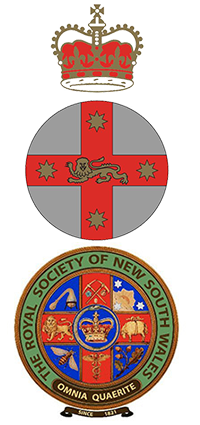 Ideas@theHouse
Ideas@theHouse
presented by
Her Excellency the Honourable
Margaret Beazley AC QC, Governor of NSW
“Manufacturing at the Atomic Scale”
Scientia Professor Michelle Simmons
AO FRS DistFRSN FAA FTSE
UNSW Sydney
Director, ARC Centre of Excellence for
Quantum Computation and
Communication Technology
Founder, Silicon Quantum Computing
Date: Thursday, 4 August 2022, 6.00 pm - 8.00 pm AEST
Venue: Government House Sydney - face-to-face and live streaming
Registration: Registration to receive a formal invitation from Government House is required. Registration closes on Monday, 11 July at 9.00 pm AEST
Entry: no charge but registration is open only to RSNSW members
Enquiries: This email address is being protected from spambots. You need JavaScript enabled to view it.
All are welcome
Please note that you are registering to receive a formal invitation from Government House Sydney to this face-to-face event. Until you receive this formal invitation by email from Government House Sydney, within days of the close of registrations, and you RSVP online you are not enrolled for the event.
Summary: Ideas@theHouse is an initiative of Her Excellency the Honourable Margaret Beazley AC QC, Governor of NSW and Patron of the Royal Society of NSW, to host public events at Government House that highlight important and influential ideas. In this lecture, the fifth in the Ideas@theHouse series presented by the Governor in partnership with the Royal Society of NSW, Professor Michelle Simmons AO FRS DistFRSN FAA FTSE, Scientia Professor at UNSW Sydney, Director of the ARC Centre of Excellence for Quantum Computation and Communication Technology, and Director of the startup company Silicon Quantum Computing will present a lecture titled "Manufacturing at the Atomic Scale", following the recent announcement of their breakthrough development of the world's first quantum computer integrated circuit. The presentation will be followed by a reception hosted by the Governor of NSW.
Michelle Simmons has pioneered unique technologies to build electronic devices at the atomic scale, pushing the boundaries of global research in classical computing, and opening up the prospect of developing a silicon-based quantum computer: a powerful new form of computing with the potential to transform information processing. Her achievements include the development of the world's smallest transistor, the narrowest conducting wires, 3D atomic electronics, and the first two-qubit gate using atom-based qubits in silicon. Most recently, in June 2022, the startup company SQC, of which she is the founder and director, announced the world's first integrated circuit at the atomic scale, comprising 10 quantum dots that created a quantum integrated circuit capable of simulating molecular behaviour.
POWER AND PERIL OF THE DIGITAL AGE
Dates: Thursday and Friday, 4–5 November 2021, 9.00am–12.30pm AEDT
Venue: Live streaming and subsequent on YouTube
Registration: Details to follow.
We are at a moment in time when we must acknowledge and address the inevitably rising tide of data use and digital services. History will categorize the early decades of the 21st Century as the digital age, the age of prodigious development and use of digital technologies that enable us to transfer and access information easily and swiftly.
So much so that digital interaction is a defining characteristic of modern human life. Societies, economies, and political processes are infused and connected by the ubiquitous use of smart machines and software that process and communicate information to us in ways that would have been unimaginable just a few years ago.
The pace of digitisation was already fast by the end of 2019 before COVID-19 emerged. The pandemic broke through cultural barriers and enabled implementation of digital strategies in a matter of days or weeks rather than years. Digital technologies are central to dealing with the pandemic itself, as well as being the primary driver of productivity in almost every other aspect of society.
Almost all companies, governments and organisations across the world are increasingly taking advantage of the benefits associated with data analytics, artificial intelligence, and the Internet of Things to solve problems never solved before, to undertake projects in five days that would have taken five years — problems such as those embodied in the United Nations General Assembly’s Sustainable Development Goals and their achievement by 2030. Tangible benefits include greater social connectivity, learning opportunities, information storage, versatile working and transport, and greater access to entertainment, news, banking and finance.
Unlocking the power of the digital age also brings peril, associated with concerns about data security, state-based and transnational crime, and terrorism, complexity, privacy, social disconnection, media manipulation, manipulation of the truth, communities left behind, national defence and market vulnerabilities, outstripping rule-making and regulatory structures.
This year, the Royal Society of NSW in partnership with the Learned Academies - Health and Medicine, Humanities, Science, Social Sciences, and Technology and Engineering, has chosen “Power and Peril of the Digital Age” as the theme for its annual Forum.
Our goal is to have a grown-up conversation about digitisation and the use of data. It will be framed around the future life of a child born on the first day of the Forum, 4 November 2021. This child will be born into a world of increasingly complex digital systems that hold great value and vulnerability.
Starting with a technological framing, the Forum will explore several major aspects which will impact the journey of that child as we approach 2030 and beyond. We will explore aspects of technology, health, defence, and security in a digital age, and the changing nature of industry as the world and society evolves.
Finally, our annual Forum will be a call to arms for the host Societies to focus on challenges identified during the day that must be addressed for Australia to remain a prosperous, successful, and safe democracy in the digital world.
The Royal Society of NSW acknowledges the generous support of Her Excellency, the Honourable Margaret Beazley AC QC, Governor of NSW, the Office of the NSW Chief Scientist and Engineer, and the NSW Smart Sensing Network.
Program: Day 1 (Thursday, 4 November, 9.00 am – 12.30 pm)
| Time | Session | Subject and Speakers |
| 09:00–09.20 | Welcome to Country Susan Pond AM FRSN FTSE FAHMS President, Royal Society of NSW and Chair, Forum Program Committee |
|
| Official Opening Her Excellency, The Honourable Margaret Beazley AC QC Governor of New South Wales |
||
| Introduction to the Moderator and Rapporteur Susan Pond AM FRSN FTSE FAHMS President, Royal Society of NSW |
||
| Moderator and Rapporteur Ian Oppermann FRSN FTSE Chief Data Scientist, NSW Government Industry Professor, University of Technology Sydney |
||
| 09.20–10.00 | 1.1 | Science and technology underpinning the digital age: past, present and future |
| Cathy Foley AO PSM FAA FTSE HonFAIP FInstP Australia's Chief Scientist Australian Government |
||
| Hugh Durrant-Whyte FRS FREng FAA FTSE FIEEE HonFIEAust NSW Chief Scientist and Engineer NSW Government |
||
| 10.00–10.30 | 1.2 | Digital lifetime of a child born today |
| Frances Foster Thorpe Executive Director, Shaping Futures NSW Department of Premier and Cabinet |
||
| Sue Bennett Professor, Deputy Director and Connected Child Co-Leader ARC Centre of Excellence for the Digital Child University of Wollongong |
||
| 10:30–10.40 | Morning Tea |
|
| 10.40–11.10 | 1.3 | Avoiding a digital dark age |
| Shawn Ross FSA Director, Digitally-Enabled Research (Office of the Deputy Vice-Chancellor (Research)) and Professor of History and Archeology Macquarie University |
||
| Theresa K D Anderson MACS Snr CP Social Informaticist, Connecting Stones Consulting and Research Fellow, School of Information Sciences University of Illinois at Urbana-Champaign |
||
| 11.10–11.40 | 1.4 | Health of our digital child |
| Nigel Lyons Deputy Secretary, Health Systems Strategy and Planning Department of Health, NSW Government |
||
| Louisa Jorm FAHMS Professor, Faculty of Medicine and Foundation Director, Centre for Big Data Research in Health UNSW (Sydney) |
||
| 11.40–12.20 | 1.5 | Safety and security of our digital child |
| Dale Lambert PSM FTSE Chief, Cyber and Electronic Warfare Division Defence Science and Technology Group Australian Government Department of Defence |
||
| Rory Medcalf Professor and Head, National Security College Crawford School of Public Policy Australian National University |
||
| Audience Q&A | ||
| 12.20–12.30 | 1.6 | Setting up for Day 2, including the Challenges |
| Ian Oppermann FRSN FTSE Chief Data Scientist, NSW Government Industry Professor, University of Technology Sydney |
Program: Day 2 (Friday, 5 November, 9.00 am – 12.30 pm)
| Time | Session | Subject and Speakers |
| 09:00–09.20 | Welcome and Acknowledgement of Country Susan Pond AM FRSN FTSE FAHMS President, Royal Society of NSW |
|
| Recap of Day 1 Ian Oppermann FRSN FTSE Moderator and Rapporteur |
||
| 09.20–10.20 | 2.1 | The light and shade of technology on our digital child |
| Moderator: Dr Ian Oppermann FRSN FTSE | ||
| Edward Santow Industry Professor, University of Technology Sydney (Immediate Past) Australian Human Rights Commissioner |
||
| The Hon. Verity Firth Executive Director, Social Justice University of Technology Sydney |
||
| Mr Marc Fennell Journalist and Maker of Things |
||
| Aengus Tran Founder and Chief Executive Officer Harrison.ai |
||
| 10:20–10.30 | Morning Tea |
|
| 10.30–11.30 | 2.2 | Securing the future of our digital child |
| Robert Hillard Managing Partner Deloitte Consulting Asia Pacific |
||
| Angie Abdilla Founder and Chief Executive Officer Old Ways, New Australia |
||
| Toby Walsh FRSN FAA Laureate Fellow and Scientia Professor of Artificial Intelligence UNSW (Sydney) |
||
| Kate Wilson Executive Director, Climate Change and Sustainability NSW Department of Planning, Industry and Environment |
||
| 11.30–12.10 | 2.3 | Future Australia |
| Short Statements from Learned Academy Representatives | ||
| 12.10–12.30 | 2.4 | Wrap-up and Close |
| Ian Oppermann FRSN FTSE Chief Data Scientist, NSW Government Industry Professor, University of Technology Sydney |
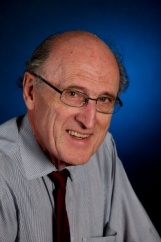 The Royal Society of New South Wales is delighted to announce the appointment of Emeritus Professor Ian Sloan AO DistFRSN FAA as a Distinguished Fellow of the Society. The honour of Distinguished Fellow is awarded to internationally-distinguished contributors to science, art, literature or philosophy, with the number of Distinguished Fellows being limited to 25 at any time.
The Royal Society of New South Wales is delighted to announce the appointment of Emeritus Professor Ian Sloan AO DistFRSN FAA as a Distinguished Fellow of the Society. The honour of Distinguished Fellow is awarded to internationally-distinguished contributors to science, art, literature or philosophy, with the number of Distinguished Fellows being limited to 25 at any time.
Ian Sloan is a Melbourne-born mathematician and physicist. He was educated at the Universities of Melbourne and Adelaide and received a PhD in theoretical atomic physics from University College London. After a short period in industry, he joined the University of New South Wales (UNSW Sydney). Subsequently, he was appointed to a Personal Chair in Mathematics, served as Head of the School of Mathematics and Chair of the National Committee for Mathematics, and was appointed a Scientia Professor.
He began his research career in theoretical atomic and nuclear physics but later switched to computational mathematics, see “A fortunate scientific life” (pp. 19–26). In all, he has published more than 300 papers in theoretical physics and computational mathematics, with research recognised by the Lyle Medal of the Australian Academy of Science, the Szekeres Medal of the Australian Mathematical Society, the ANZIAM Medal, and the Information Based Complexity Prize. He is a Fellow of the Australian and American Mathematical Societies and the (US) Society for Industrial and Applied Mathematics.
He has served as President of the International Council for Industrial and Applied Mathematics, the Australian Mathematical Society, and the Royal Society of New South Wales. He was elected a Fellow of the Australian Academy of Science in 1983, a Fellow of the Royal Society of New South Wales in 2014, and in 2018 was appointed an Honorary Doctor of the University by UNSW Sydney. In 2008 he was appointed an Officer of the Order of Australia “for service to education through the study of mathematics, particularly in the field of computational mathematics, as an academic, researcher, and mentor, and to a range of national and international professional associations”.
Western NSW Branch
About the Branch and its Role
The Council of the Royal Society of NSW confirmed the establishment of the Western NSW Branch of the Society at its July 2021 meeting. An Inaugural Meeting to elect the office-bearers was held on 14 September 2021.
Charles Sturt University is supporting the establishment of the Western NSW Branch and is currently approaching cultural institutions and local industry within the Western Region to support the branch.
The vision and mission of the Branch are those of the broader Society, while its key objectives are to:
- Establish a vibrant and sustainable Branch of the Royal Society of NSW within the Western Region of NSW
- Build and foster partnerships with relevant and appropriate organisations in the region
- Market and promote the role and purpose of the Royal Society within the
broader community - raise funds to provide continuing financial support for the role the Royal Society would play within the Western Region of NSW.
Office-bearers
Nominees for Office-bearers, elected at the 2024 Annual General Meeting of the Branch, are listed below.
| Chairperson | Professor Mark Evans FRSN |
| Deputy Chairperson | Ms Tracy Ryan MRSN |
| Secretary | Ms Rhonda O'Brien |
| Treasurer | Mr Nilima Mathai |
| Committee Members (up to six) | Professor Lesley Forster FRSN |
| Professor Geoff Gurr FRSN | |
| Professor Francesco Marino FRSN | |
| Dr David Nash FRSN |
Contact
Please address enquiries to the This email address is being protected from spambots. You need JavaScript enabled to view it..

